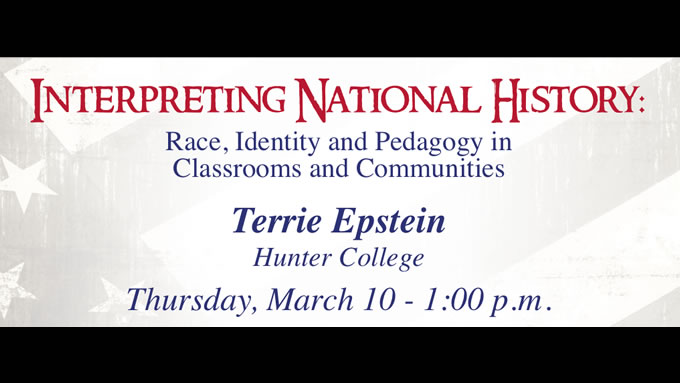
Terrie Epstein, March 10, 2011: Interpreting National History
22 Feb 2011
In a six year ethnography of a midwestern working class community, the author examined how children’s, adolescents’, and adults’ racial identities and classroom and community pedagogies shaped participants’ interpretations of history and society. Based on research with 100 students, 6 teachers, and 24 parents, the author demonstrates how African American and European American students and adults constructed different perspectives on race relations and individual rights in U.S.history and contemporary society. While teachers had some effects on students’ historical thinking, young people’s racial identities had greater influence on their perspectives on the past. The author concludes with implications for research and practice related to teaching national history in diverse democratic societies.
Terrie Epstein is a Professor of Education at Hunter College and the City University of New York Graduate Center. She is author of Interpreting National History: Race Identity and Pedagogy in Classrooms and Communities and co-editor of Teaching U. S. History: Dialogues between Social Studies Teachers and Historians (both published by Routledge Press in 2009). Her interests include research on teaching and learning history and studies of teaching and learning in urban settings.
Sponsored by the University of Nebraska Foundation, the Department of Teaching, Learning & Teacher Education, and the College of Education and Human Sciences.
College of Education and Human Sciences
Teaching, Learning & Teacher Education